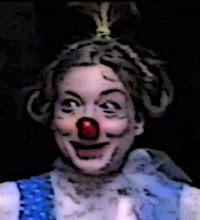In November I spent two weeks in Sudan teaching theater and here, finally, is my full account of this amazing experience. It was an intensive time that proved deeply enriching and meaningful. I worked
with a group of young men and women burning to express themselves creatively
within a challenging political and cultural environment.
Quick country background: Sudan is a country in northeast Africa, south of Egypt, that recently split into Sudan and South Sudan. Sudan has been ruled by one regime since 1989, which instituted
Sharia law, and has been branded by the U.S. as a sponsor of terrorist organizations. The country has suffered financial
sanctions for over 15 years. This past September the government cut subsidies, prices rose sharply, and people
took to the streets in protest, which regime forces quickly quelled, reportedly
resulting in 200 deaths. It is a somewhat precarious time for Sudan...
Enter our cultural diplomacy program. For this project I joined American
Voices and its YES Academy (Youth Excellence on Stage), a cultural exchange
program focused on countries emerging from conflict and isolation. The YES
Academy Sudan program was sponsored by the US Embassy and the Sudanese
Ministry of Culture and took place in the capital Khartoum. The program offers training in American cultural forms such as jazz, rap, hip hop and musical theater. This time they included a social theater component: I was brought on to teach physical theater to university students and children and to create a performance piece on a relevant social issue. We had 10 days
to hone their skills and to create and publicly perform a theater piece.
This was the first high-profile artistic exchange between
the U.S. and Sudan in many years, or perhaps ever -- and we were watched closely by the Sudanese
government. They sent a government
“minder” to keep an eye on us. I
imagine they wanted to ensure we were not about to corrupt their youth and
foment a revolution. The government representative’s name was Obay. I am not kidding. And he was from the Central Thought and Culture
Office. (You can’t make this stuff
up.) We were suspicious at first,
and a bit nervous about his presence. But Mr. Obay in the end turned out to be an ally who
strongly advocated for our program to the rest of the authorities. There were apparently factions in the government
who were not so keen on our presence.
A representative from the Ministry of Culture, who was our main sponsor, also came by
to see how things were going. He
seemed genuinely concerned about how the rest of the world views Sudan, and appeared to think that this artistic exchange will have a real influence on improving
Sudan’s image and relationship with the U.S. I’m glad that he values the arts and
its potential power! He asked me to tell everyone that everything you heard
about Sudan isn’t true. (They are not terrorists.) So if you see Obama, be sure to let him know.
For myself, what I value is not the political impact, but
the human connection.
I worked with a group of wonderful people and we had a truly
beautiful exchange. Indeed,
everyone I met in Khartoum was friendly, hospitable and good-humored. One of
the things that touched me about Sudan was how keen the people are to connect
with Americans and for us to have a positive view of their country. I was met with a huge smile and the
immediate question: “How do you like Sudan?” and “Why don’t you stay
longer?” Next time I will! This was a whirlwind and a roller coaster
ride. I did not really have the chance to fully experience
all of Khartoum and Sudan. There’s
so much to learn still. Especially about the theater in Sudan.
Coming up: Working with the drama students -- koulakoum moubalara!










No comments:
Post a Comment